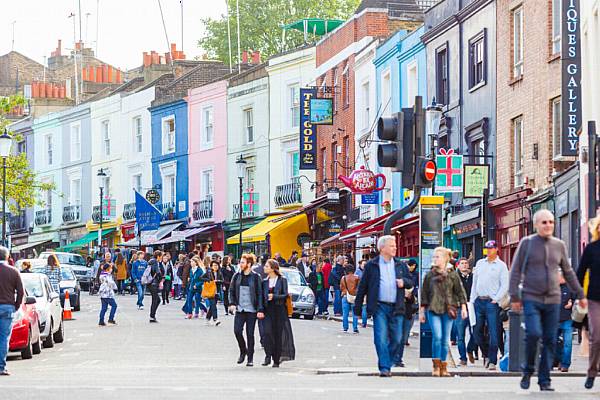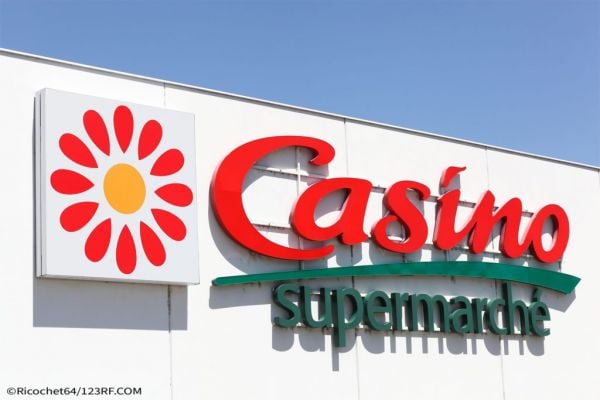With sustainability targets looming large on the horizon, it’s never been more important for retailers and consumer goods firms to engage in concrete action. This article first appeared in ESM’s November/December 2022 edition.
When it comes to discussing environmental issues, UN Secretary General António Guterres has developed a reputation for not mincing his words, and his opening address at the recent COP27 meeting in Sharm El-Sheikh, Egypt, was a case in point.
“We are in the fight of our lives, and we are losing,” Guterres explained, adding that humanity is fast approaching tipping points that could lead to climate collapse and render earth uninhabitable for future generations.
“We are on a highway to climate chaos, with our foot still on the accelerator,” as he put it.
At the time of going to press, the COP27 meeting was drawing to a close, with some positive signs, but little indication that nations were willing to sign up to a pledge as trailblazing as the Paris Agreement of 2015 – a draft agreement, published the day before the meeting drew to a close, was likely to lead to ‘climate hell’, according to Greenpeace.
The continued war in Ukraine, a venomous political landscape in many leading economies, and apathy on the part of several major nations, such as China, to take action, are likely to lead to this year’s annual gathering going down as yet another missed opportunity.
Time Waits For No One ...
... and yet the clock keeps ticking. As IGD’s Toby Pickard pointed out at the IGD Insight and Impact event in London recently, there are around 1,000 days (and less than 780 working days) remaining until 2025 draws to a close, meaning that action will need to be stepped up considerably for governments and businesses alike to meet their mid-decade environmental targets.
The Ellen MacArthur Foundation, for example, has already called out major brands such as Coca-Cola, Pepsi, Nestlé and Mars on their collective commitment to ensure that 100% of plastic packaging will be reusable, recyclable or compostable by 2025 – a goal that will ‘almost certainly be missed by most organisations’, it noted.
Beyond that, the 2030 Agenda for Sustainable Development – adopted by UN member states in 2015, and subsequently by countless organisations and businesses around the world – looms into view, again with action seemingly lacking on several core environmental targets and any number of 2050 commitments, including international net-zero targets.
From where we stand currently, the world of 2050 may already be an inhospitable place.
No More Talking
As has become abundantly clear in recent months, with the prevalence of heatwaves and other freak weather patterns interminably rising, the time for talking is over, and it’s time to act. For retailers and CPG firms, this has never been more prevalent. It’s no longer enough to hide behind toothless CSR commitments or measureless deadlines – 2070, anyone? – as the wider business community, investors, and, more importantly, consumers will no longer tolerate it.
As a recent report by The Consumer Goods Forum and Accenture noted, consumer industries across both direct and indirect scopes contribute an estimated 30% to 35% of global emissions – if, collectively, they were a country, they would be, by far, the biggest emitter of greenhouse gases.
The report, The Net-Zero Playbook for Consumer Industries, highlights the value creation opportunity for businesses by tackling carbon emissions, in terms of areas such as consumer relevance, a more resilient operating model, energy and carbon efficiency, and risk management, including the ‘right to operate’. As it notes, ‘While these opportunities are neither easy nor quickly accomplished, they have the potential for long-term value creation and are achievable for those with the will to take decisive action.’
“Even in times of great disruption and uncertainty, the consumer goods industry has proven to be adaptable and resilient,” noted Oliver Wright, senior managing director and global lead for Accenture’s Consumer Goods & Services practice. “The challenge of managing complex global value chains and raising the bar for sustainability commitments is significant, however, now is the time for action and to make sustainability a force for change.”
The report also identifies key ‘pain points’ and gaps in net-zero action plans, and explores ways in which these can be alleviated. These include fragmented value chains, competing leadership priorities, high capital expenditure, and a difficulty in measuring ESG data across the value chain.
According to the report, the ‘stakes are now too high’ for firms to avoid
addressing these issues, adding that it is ‘not just a moral imperative, but an unprecedented opportunity to future-proof operations and create long-term value.’
A Practical Way Forward
Further to that, the recent CGF Sustainable Retail Summit saw the release of a Bain & Company report outlining how retailers can move from ‘why’ to ‘how’ when it comes to their ESG commitments, and bring consumers on the journey with them.
A recent Bain study found that nine out of ten retailers have made less – or far less – progress on sustainability than they expected. A similar lack of progress is noted on the part of shoppers, who ‘say they want progress’, but are holding back from changing their shopping behaviour, particularly during a cost-of-living crisis.
As Jenny Davis-Peccoud, partner, Bain & Company, told the summit, concrete actions on sustainability can be achieved by ‘nudging’ the shopper in the right direction, i.e. making it easier for him/her to choose sustainable products.
“We talk about the say-do gap, but there’s also the will-want gap,” Davis-Peccoud explained, noting that the majority of consumers are willing to pay a little bit more for a more sustainable product, but when that equates to two or three times more, it becomes unacceptable. Shoppers need to be incentivised to make the right choices, regardless of their financial situation or the wider macroeconomic context.
As Davis-Peccoud put it, it’s about “bass notes and high notes” – the former being the day-to-day efforts that companies make with regard to the ESG agenda, and the latter being “what you want to become famous for”.
Investor Demands
Another factor to consider is that, for many firms, sustainability is fast becoming a business imperative. Far from taking a back seat during the current cost-of-living crisis, ESG has remained a core standard expected by institutional investors – in fact, even more so than anticipated.
As a recent study by investment bank Liberum put it, throughout 2022, ESG funds ‘continued to gain market share and [attracted] more inflows than all conventional funds put together’. While reducing focus on sustainability reporting may seem reasonable in the face of global macroeconomic and socio-political pressures, they do so at their peril, at a time of heightened institutional focus on environmental matters. If anything, businesses should ‘act countercyclically’, to outshine those adopting a more subdued ESG stance.
‘If more than 25% of investors insist on including ESG criteria in their investment process, a critical mass is reached that forces the asset management industry to offer a wide range of ESG products,’ Liberum’s Joachim Klement put it in a recent briefing note.
‘The rapid increase in ESG investing across Europe may simply reflect the fact that in Europe, the critical mass of interested investors has been reached, while in the United States it has not. Once enough US investors get into ESG investing, the trend there is likely to explode similarly to Europe.’
As evidenced by the COP27 talks, governments and international organisations have been slow to grasp the nettle and enact real change when it comes to the sustainability agenda. It’s time for businesses to step up and show them how it’s done. Otherwise, as Guterres put it starkly, rather than committing to a climate solidarity pact, we will be signatories to a “collective suicide pact”.
© 2022 European Supermarket Magazine – your source for the latest retail news. Article by Stephen Wynne-Jones. Photo: Kiara Worth/UNclimatechange. Click subscribe to sign up to ESM: European Supermarket Magazine.














